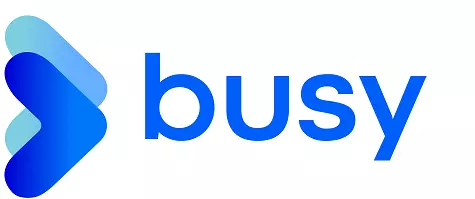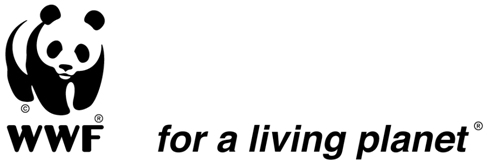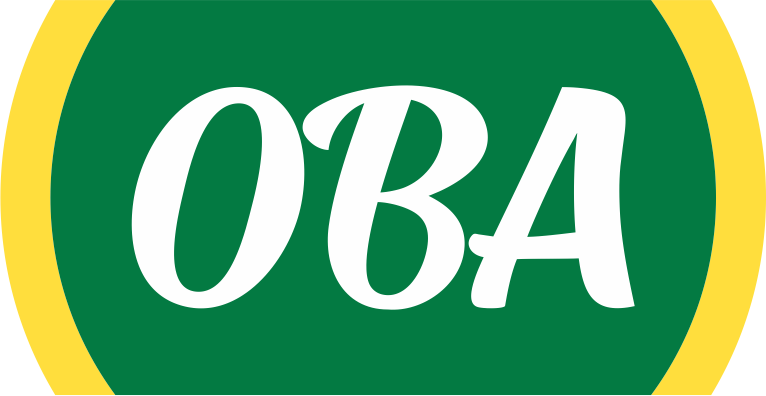National Project Coordinator
- WWF-Azerbaijan
-
Elanın qoyulma tarixi: 27.04.2016Vakansiyaya müraciət tarixi bitmişdir.
İşin təsviri
Project title: Conservation of the Leopard in the Southern Caucasus (Azerbaijan)
Position title: National Project Coordinator
Location: WWF Azerbaijan Branch, Baku, Azerbaijan
Organizational unit:
Conservation Department
Reports to: Director, WWF Azerbaijan; Conservation Director, WWF-Caucasus; WWF Switzerland and WWF-Germany (both donor of the project)
Supervises: Project staff, consultants, stakeholders
Contract type: Employee Agreement
Starting date: July 01, 2016
Project Information:
Once native to almost the entire Caucasus ecoregion, today there are only small and isolated populations with totally less than 40-65 leopards (Panthera pardus) left. Poaching of leopard and its prey species, human-wildlife conflicts (such as predation of livestock) and habitat destruction and fragmentation (e.g. illegal timber cutting, unsustainable grazing, etc.) are the main threats to the last European leopards.
The threatened Caucasian leopard (P. p. ciscaucasica/saxicolor) is identified as the main focal species by more than 200 experts, representatives of governmental and non-governmental organizations of the range countries participated in development of the Ecoregion Conservation Plan for the Caucasus (2006, revised and updated in 2012). On the one hand, leopard is an umbrella species – its conservation will also include the preservation of the prey species and their habitats – and, on the other hand, it is a flagship species – the leopard is the ideal carrier of the conservation ideas to the local population, between the range states, and to the international conservation community.
Although the conservation measures implemented during the last 10 years brought some positive results in terms of stabilization of prey population (e.g. Bezoar Goat (Capra aegagrus), Gmelin`s Moufflon (Ovis orientalis gmelinii); both globally threatened species) and an increasing sightings of leopards in main target areas of the WWF Leopard Conservation Program in the Southern Caucasus the population of leopards (7 adults confirmed) is still too small and fragmented to secure the long-term survival. In order to ensure its long-term survival the reduction and elimination of above mentioned threats is necessary. The project area is part of the current leopard range, bordering Iran with its source population. Therefore, the area plays crucial role for the resettlement of leopard in the Lesser Caucasus.
WWF already has a broad experience in addressing these topics from other projects in the Caucasus. This project will build on that experience, particularly addressing insufficient management of Protected Areas, inadequate law enforcement outside Protected Areas, as well as improvement of field monitoring and support in implementation of trust building activities addressing socio-economic development in buffer zone villages.
On the other hand, this project includes some new and for the region innovative elements, such as the establishment of leopard caretaker networks consisting of local volunteers and the feasibility study of compensation and prevention mechanisms to reduce human-leopard conflict in a leopard distribution area. The results of this assessment will be crucial outcome for long-term conservation programs, such as KfW financed Ecoregional Corridor Fund (ECF) or the Transboundary Joint Secretary (TJS). Both programs are implemented through WWF.
Project major goal: Long term goal: Ensure the conservation and sustainable management of viable meta-populations of leopard and wild prey and their habitats and build sustainable coexistence mechanisms with local communities across the Caucasus ecoregion. Experts think that the project area can provide habitat for 15 adult leopard individuals by 10 years.
Project overall goal: By 2018 population of critically endangered Caucasian leopard and its prey animals in project areas in Azerbaijan are increasing.
Project objectives:
Objective 1
By 2018 poaching outside protected areas are reduced by at least 30%. Mechanisms to mitigate human-leopard conflicts are developed and evaluated. Compensation and/or prevention mechanisms are implemented in model cases.
Objective 2
By 2018 at least five buffer zone communities (project target communities) are engaged in complementary rural development activities.
Objective 3
By 2018 capacity of targeted protected areas in Azerbaijan are strengthened and law enforcement is improved.
Objective 4
By 2018 monitoring of leopard and prey species in target region is further developed; all necessary documentation for establishing leopard corridor(s) are prepared and submitted to responsible authorities for approval, who work on final processing and legal establishment of the corridor(s).
Objective 5
By 2018 70% of the inhabitants of the project target communities support activities for leopard conservation and establishment of the wildlife corridor(s).
I. Mission of the Department:
Mission of Conservation department is developing and implementing conservation strategy through proggrames and model projects that protect critical places, critical species and reduce ecological footprint. To focus its interventions in the strategic direction of integrated management of large-scale conservation landscapes to ensure the organization delivers conservation impact at a scale that matters for WWF’s mission.
II. Major Functions:
Takes overall responsibility that project is run effectively and efficiently in all key areas by Leading and supervising project cycle according WWF standards of project and programme management which includes define, design, implement, analyze/adapt and share and meets donor requirements.
III. Major Duties and Responsibilities:
• Contribute to the development, review and update of conservation strategy;
• Implement the conservation strategy and action plan related to the project in charge;
• Prepares, regularly reviews and updates the detailed time, cost and financing schedules for the project;
• Monitor, review and update the annual budget together with SMT;
• Coordinates the Implementation of project measures and activities as defined in the action/operational plan based on the project budget;
• Monitor progress against activity work plan to ensure that the project attains its objectives as cost-effectively and efficiently as possible;
• Support overall strategic engagement and partnership building with relevant international and national stakeholders;
• Provide support in policy advocacy, fundraising and proposal development when required;
• Represent and promote the project in meetings, workshops, conferences, and symposium to present project activities and achievements, organize training courses, workshops and seminars, within the frames of the project;
• Maintain regular contact with partners to keep them aware of WWF’s activities and to seek feedback from them for continuous improvement;
• Develop and maintain effective relationships with a wide range of interested groups both inside and outside WWF, who can assist in the project activities including but not limited with governmental institutions, community, donors, NGO and other stakeholders, in order to discuss issues related to the project, raise awareness among locals and ensure their involvement;
• Provide inputs to communications products/campaigns to ensure accurate information will be published to promote the image of the organization and project activities;
• Promote and set up mechanism for information sharing with all stakeholders;
• Monitor the timely implementation and financial management of sub-contracts;
• Monitor project activities conducted by selected service providers and partners;
• Frequently travel to existing project areas, conduct field monitoring research;
• Review and provide technical comments to technical studies Coordinates the provision of technical advice to local authorities, community groups and other implementing partners;
• Leads the process of procurements, authorizes repayments and confirm acceptance certificates for delivery of goods and services. ensures that the deliverables of international and national consultants, other services and goods and works procured by the project are of the required standard and are delivered on time and within a budget;
• Provide all technical reports, presentation, maps, data and information, pictures produced by the project for CPM;
• Coordinates work of consultants;
• Be Involved in the recruitment and selection of staff under supervision;
• Ensure that project staff and consultants perform to an acceptable standard; identifies gaps in knowledge and experience and arranges appropriate training; ensure that they act in accordance with highest professional and ethical standards;
• Update Representative, Country Directors or Conservation Director on performance of staff under technical supervision;
• Develop TORs for short-term and long-term consultants and monitor the work of the consultants to ensure the deliverables as TORs;
• Responsible for ensuring excellent team dynamics, motivation, professional development and managing other employment-related issues;
• Supervise compiling all project related documentation and communication material and provide brief;
• Maintain a project monitoring and evaluation system and provide support to the evaluation of the project;
• Accountable for the submission of project technical and financial progress report.
IV. Profile:
Required Qualifications
• An university degree in Biology, Environmental /Conservation Management fields;
• Proven track record in successfully developing, leading, and managing projects and/or institutions in the field of conservation, natural resource management, international development, and/or other related fields;
• At least 3 years professional experience in a managing projects;
• Demonstrated experience in liaising and co-operating with government, local administrations, donors, NGOs and private sector;
• Experience of senior level negotiations;
• Fluent in Azerbaijani, English and Russian languages;
• Advanced computer user.
Required Skills and Competencies
• Excellent communication, negotiation skills;
• Ability to relate convincingly and credibly with diverse audiences including senior executives;
• Strong organizational skills with an aptitude to get things done;
• Ability to conceptualize and create products which link programme with business interests;
• Demonstrated ability to successfully handle multiple, time critical tasks;
• Strong leadership and people management skills;
• Adhere to WWF’s values: Knowledgeable, Optimistic, Determined and Engaging.
V. Working Relationships:
Internal - Interact extensively with other departments at WWF Azerbaijan as well as WWF International and National Organizations and Programme Offices through network.
External - Interact with governmental institutions, local communities, Universities, donors, NGOs, media, and other programmes and projects with related objectives and activities.
E-mail: [email protected]






